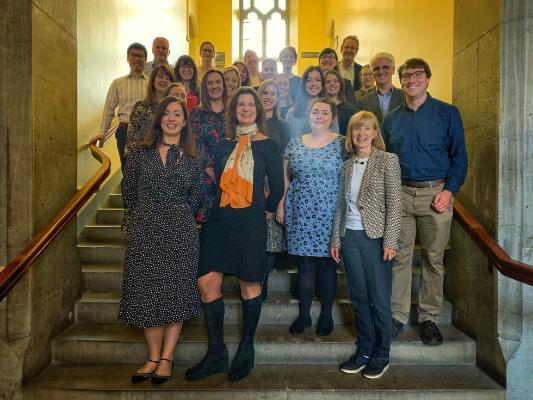News
Now is a chance for businesses to learn about their people and practices

The way in which Irish society has reacted to the Covid-19 crisis has been nothing short of awe-inspiring.
In a relatively short space of time, the misplaced panic that cascaded through the nation’s supermarket aisles was replaced by a sense of civic duty and collective responsibility. Social media, which had become a cesspit of misinformation and untruth, is now dominated by stories of ordinary people making extraordinary contributions to the national effort.
Together, Taoiseach, Leo Varadkar, and the nation’s health officials deserve a lot of credit for shaping our collective response to this genuine emergency.
From the beginning, they have been honest and forthright. Understanding that draconian measures are difficult to implement in a democratic nation, our political leaders have trusted us to make the right decisions. As a result, they have created an atmosphere in which people see social distancing as a responsibility rather than an enforceable obligation.
After all, social pressure rather an an order from the government brought about the closure of pubs, with many publicans making their own early decisions that social distancing was too difficult.
Business owners and SMEs across the country have also embraced the positive social momentum that has emerged. Our universities stepped up and graduated their medical students early and virtually so they could move directly to support their new profession as soon as possible. University staff, including our own, set up contact tracing centres in universities in a matter of days.
Even organisations that may have previously been apprehensive about instituting a working from home policy are beginning to understand that presentism and productivity are not related. In fact, throughout this period, organisations might find that staff who aren’t being bombarded by emails, phone calls and general office conversation can concentrate on completing specific tasks without interruption.
In this sense, taking a longer term view, this Covid crisis might yet provide companies with an unexpected boost in the quality of their output. However, given the circumstances we face, where the domestic and professional responsibilities of employees might uncomfortably overlap, organisations will need to provide some flexibility to staff.
Organisational leaders are learning that employees cannot simply “turn off” a toddler to join a video call or instantly respond to an email. Instead, managers must learn to trust that their staff will complete the tasks assigned to them.
Our experience during Storm Ophelia in 2017, and the snowstorm wrought upon us by the Beast from the East five months later, demonstrated that staff appreciated being able to work around their domestic obligations. For example, parents of teenagers might prefer to start earlier, while evenings might suit those with toddlers. In any case, the standard 9-5 did not apply.
Instead, at UCC Academy, we focused on outcomes rather than inputs and we trusted our staff to be ‘grown-ups’, knowing they would complete their tasks in a transparent manner, with work continually shared and uploaded.
As CEO, I can see that the trust we place in our people is reciprocated in the longer term. Right across our organisation, we have talented people who have been approached by larger companies with much deeper pockets. However, to my relief and gratitude, they have often chosen to remain with us.
I feel this to be an endorsement of our progressive work-life balance policy and organisational culture. Being in a position to retain key personal also plays well with clients who appreciate the continuity that we can provide as a result.
After following #workingfromhome for some time, it would appear that the practice of working from home remains more of a concept than a policy in some organisations. Nevertheless, employers and employees are making it work because our sense of unity and purpose is papering over the cracks. However, as the crisis progresses and the novelty begins to diminish, weaknesses in policies will be exposed, procedures will be tested and relationships will become strained.
Yet, even at this stage of the crisis, with no end in sight, we realise that we will continue to find ourselves logging on at home for many months ahead. As other countries begin to exit lockdown, social distancing requirements mean that a blend of remote working and office attendance will likely be necessary. And even when this is no longer necessary, remote work will become more accepted and mainstream.
Notwithstanding the challenges presented by working from home, particularly when schools remain closed, we can see that a blend of working from home is likely to become an inherent part of our professional lives.
The last few weeks have been testing on a number of levels, and of course, some businesses might not survive the crisis. However, those that do will have learned so much about their people, practices and systems and be able to operate in different ways.
Following the crisis, I fully expect to see meetings streamlined, email circulation reduced and employees imbued with a greater sense of autonomy and accountability.
This can only be a good thing.
Arlene Vithaldas is CEO of UCC Academy - UCC’s In-house Consultancy.
